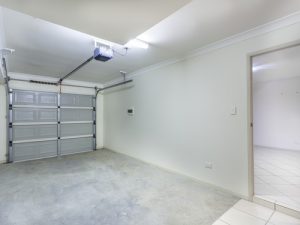Garage Fire Hazards
Most American homes come complete with an attached garage and most garages are used to hold the more hazardous and flammable materials kept in our households. It is that very same accessibility that we love that poses a hazard. In addition, the garage is often used as a workshop, for storage and where most water heaters and boilers are kept. It is because of all these variables that it is important to maintain a safe and hazard free environment in your garage, in order to avoid any incidents such as fires.

The first place to start is with the garage itself. The average homeowner may not be aware that there are certain codes that require garages to be made with fire-rated material, the most common being Gypsum boards. If it is unclear to you whether or not your garage meets the requirements, makes sure to call an inspector to verify. This is your first line of defense against potential hazards.
Other structural defenses include a self-closing door between the home and the garage, a curb along the perimeter of the garage to prevent flammable liquids from flowing into the home and keeping the water heater (if present) 18” off of the ground to prevent the pilot light from coming in contact with any spilled flammable liquids. Basically, any material that the garage is comprised of needs to be fire- rated, including the floors! Be sure to keep an eye out for any cracks in the foundation or any space that could allow hazardous materials to make their way inside the home.
However, it’s not just the responsibility of the builders to ensure the safety of your home. As a homeowner, you too play a role. No, you really shouldn’t just “throw that box down anywhere.” When considering safety and protection against fire hazards, clutter is not your friend. Attempt to keep loose papers or flammable materials off of the floor. Use light bulbs with the proper wattage to prevent any random sparks that may ignite a fire. This includes outlets, do not overload them and be sure to unplug what you can, the less you opportunity for short circuiting incidents. If there are appliances that need to remain plugged in, do your best to keep the wires neat and tied back to avoid fraying which could lead to the spark heard round the home.
One of the most inconspicuous hazard in your garage is your car. The car itself is not a hazard, however if your garage has been neglected and preventative measures have not been taken against the aforementioned potential dangers and an incident were to occur, it would only add fuel to the fire. Quite literally. Be sure to properly label and store all hazardous materials kept in the garage. If you absolutely need to store such materials, be sure to keep them away from any heating sources, like appliances or pilot lights. If possible, it would be an even better idea to store materials such as propane, outside.
As we all know, informing yourself is the best line of defense, whether it be through an inspector or via the internet. Taking the time to prevent incidents is more efficient than cleaning up after one!
